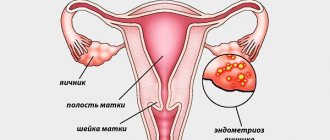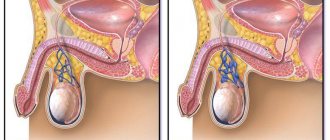There are diseases that make it difficult or even impossible to experience the joy of motherhood. Such diseases include infertility, and it is typical not only for women, but also for men. But today we will talk about female infertility, its types, causes and methods of treatment. It depends on many factors, from lifestyle to the psychological state of the patient.
Conventionally, there are two types of female infertility - absolute, when the inability to conceive is associated with genetic disorders or underdevelopment of the organs of the reproductive system, and relative, the reasons for which can be different, up to the incompatibility of partners.
Classification of infertility
Based on their origin, the following types of female infertility are distinguished:
- primary;
- secondary.
Based on the localization of pathological changes, the following forms of infertility in women are distinguished:
- tubal - caused by the absence of fallopian tubes or their obstruction;
- uterine – associated with various pathologies of the uterus;
- endocrine – caused by a malfunction of the endocrine organs;
- peritoneal – associated with the formation of adhesions in the pelvic organs;
- immunological;
- infertility caused by abnormalities in the development of a woman’s reproductive organs (hypoplasia of the uterus, saddle uterus, bicornuate uterus, and so on);
- idiopathic infertility - the causes of its occurrence are unknown.
Should you use herbs for treatment?
You cannot choose (let alone collect) herbs for infertility yourself and self-medicate. The causes of infertility can be different, even opposite. And what benefits one woman can harm another. It's the same with men. Traditional herbal treatments for infertility are a hit-and-miss treatment. Therefore, the cause of infertility should be diagnosed by a qualified doctor. That said, some plants have actually been shown to be effective for some fertility problems. They are still used in traditional medicine to treat infertility caused by certain reasons.
Among these plants is Vitex, which gently normalizes hormonal balance by regulating the production of prolactin. Therefore, if pregnancy does not occur due to hyperprolactinemia, then a doctor can recommend Vitex extract.
The drug Pregnoton includes vitex extract, a complex of vitamins and other substances that help normalize the cycle and improve fertility in women.
THIS IS NOT AN ADVERTISING. THE MATERIAL WAS PREPARED WITH THE PARTICIPATION OF EXPERTS.
Causes of infertility
There are many reasons why women can develop infertility. For ease of classification, they are all divided into several large groups:
- Hormonal reasons:
- increased synthesis of prolactin - this prevents the pituitary gland from producing in the required volume the substances necessary for the process of fertilization of the egg to proceed normally;
- insulin resistance;
- polycystic ovary syndrome;
- increased synthesis of male sex hormones, which leads to cycle disruption and lack of ovulation, as a result of which pregnancy becomes impossible.
- Venereal diseases:
- gonorrhea;
- chlamydia – causes the formation of adhesions in a woman’s reproductive organs, which makes pregnancy impossible.
- Physiological reasons:
- obstruction or partial obstruction of the fallopian tubes is one of the most common causes of female infertility; with this pathology, sperm cannot reach the egg and die without fertilizing it;
- uterine fibroids - causes problems with conception and even if pregnancy occurs, there may be a miscarriage;
- scars on the cervix that may appear after surgery;
- endometriosis is a pathological growth of the uterine mucosa, leading to the formation of adhesions in the fallopian tubes.
- Other reasons:
- genetic reasons;
- the inability of a woman to bear a child - in this case, pregnancy occurs, but it ends in a miscarriage.
There are a number of factors that can trigger the development of infertility.
These include:
- age – in women who have not given birth to their first child before the age of 35, the likelihood of pregnancy decreases, and the risk of developing chromosomal mutations in the fetus increases;
- severe stress, nervous shock - can lead to hormonal imbalance and the development of infertility;
- obesity or vice versa underweight;
- bad habits (tobacco smoking, alcohol abuse).
Types of infertility
The division into primary and secondary infertility is necessary in order to indirectly judge whether a woman is in principle capable of becoming pregnant. In the case of secondary infertility, this is necessary in order to determine which factor and at what point in life could have influenced the woman’s reproductive function so much that pregnancy does not occur at the moment.
The most favorable age for a woman to conceive and carry a pregnancy is 18-30 years. After 30 years, a slight decrease in fertility is possible; after 35 years, a gradual depletion of reproductive function begins; after 40 years, many women are no longer able to have children; however, there are cases of pregnancy at a later age, even after 50 years.
Typically, about a quarter of couples diagnosed with infertility already have children, i.e. they faced the problem of secondary infertility. Thus, even a successful conception and course of the first pregnancy is not a guarantee of a successful pregnancy in the future. Primary infertility is more often associated with more severe pathology of the reproductive system than secondary infertility. Absolute infertility is the impossibility of pregnancy, which can be either primary or secondary, for example, in the case of a congenital absence of the uterus or ovaries or after surgical treatment.
The division of infertility into primary and secondary applies not only to women. In the case of male infertility, it is primary if this man did not make any of his sexual partners pregnant during unprotected sex, and secondary - if pregnancy occurs, and its outcome is unimportant, since in this case it is the possibility of conception that is assessed. Among men diagnosed with secondary infertility, reviews predominantly talk about the inflammatory or traumatic etiology of the problem.
In the same way, they talk about the primary or secondary nature of infertility of a married couple as a whole.
The cause of infertility in a married couple in which both partners have been examined and no objective reasons for infertility have been identified for each of them, may be the immunological incompatibility of the partners, or the so-called “biological incompatibility”. This diagnosis can be confirmed by special tests. If additional research does not confirm the diagnosis and no causes of infertility have been identified, then such infertility is called idiopathic, or infertility of unknown etiology.
Symptoms of infertility
The main sign of infertility is the absence of pregnancy for a year or more, provided that the woman has regular sex life, does not use contraceptives, and is of reproductive age.
Quite often there are no other symptoms. The woman feels absolutely normal and has no health complaints.
A possible manifestation of infertility is a cycle disorder (menstruation becomes too short or long, strong or, on the contrary, insignificant, and so on). In addition, any woman should be wary of foreign discharge from the genitals.
During the examination, the gynecologist may identify the following signs that may indicate the possibility of developing infertility:
- underweight or obesity;
- the presence of painful seals in the pelvic area;
- endocrine diseases;
- gynecological diseases;
- underdevelopment of the mammary glands.
What components are included in this collection?
From us you can buy Monastic tea at a good discount
The herbal collection for infertility consists of 42 components - medicinal herbs that have a systemic effect on the entire body, restoring the functioning of its systems. These miracle herbs improve reproductive function and overall health of a woman. You will become more energetic and significantly improve your quality of life! The main components of the collection: Linden. Normalizes the functioning of the nervous system, stimulates blood flow, fights inflammation and infections of the female genitourinary system. Oregano. Normalizes the menstrual cycle. Nettle (leaves and seeds). Restore the menstrual cycle. Strengthen the immune system, stimulate the body's defenses. Red brush. Helps eliminate the causes of infertility (endometriosis, fibroids, ovarian cysts). Normalizes female sex hormones, relieves various inflammations of the reproductive system. Coltsfoot. Improves metabolism, normalizes blood flow, eliminates inflammation, helps fight diseases of the female genitourinary system. Sainfoin. Restores the functioning of the ovaries, normalizes menstruation in women. Sea buckthorn (bark). Supplies the body with vitamins and helps get rid of genitourinary diseases. Cuff. It is an ideal herbal remedy for young women wishing to conceive a child. Rhodiola rosea. Improves tissue regeneration, destroys fungi and pathogenic bacteria. Knotweed. Stimulates the functioning of the ovaries, increasing the likelihood of conception several times. Plantain. Helps in the treatment of diseases of the female genital area, relieves inflammation, and is used for ovarian dysfunction. Lungwort. Useful for female infertility if it develops against the background of inflammatory processes in the reproductive system. Sage. It is recommended for use if there are problems conceiving a child, as it increases the ability of the cervix to retract sperm. Motherwort. It is an excellent remedy for treating disorders of the female reproductive system, including irregular menstrual cycles and infertility. All components included in the collection are maximally absorbed by the woman’s body and begin to act immediately, without causing harm to health. A highly effective collection for female infertility has already helped many women regain their health and experience the joy of having a baby.
Diagnosis of infertility
To diagnose the disease, the following diagnostic techniques are used:
- Anamnesis collection, interview and external examination of the patient.
- Physical examination.
- Instrumental and laboratory research methods:
- infectious screening for STDs;
- Ultrasound of the thyroid gland and pelvic organs – hormonal infertility is diagnosed;
- hormonal screening – to identify endocrine infertility;
- SCT (spiral computed tomography) of the pelvic organs - identifies the anatomical causes of infertility;
- MRI;
- hysterosalpingography - radiography using a contrast agent, carried out to determine the degree of patency of the fallopian tubes;
- hysteroscopy - during this study, the uterus is examined to detect ulcers, adhesions, tumors, inflammations that can cause infertility;
- laparoscopy - detects ovarian cysts, tubo-peritoneal infertility, uterine tumors, adhesions in the pelvic organs.
Order Monastic collection for female infertility
Our representative office is the only certified and official supplier of monastery tea in Russia and the CIS countries. To place an order, just fill out the required fields and within a couple of hours an operator will contact you by phone. All questions of interest can be clarified during communication.
Infertility treatment
Therapy depends on the type of infertility, its cause, age, health status and individual characteristics of the patient’s body. Most often, treatment includes the following steps:
- Sexual intercourse at a time favorable for conception.
- Hormonal therapy . It is carried out to normalize hormonal levels, restore ovarian function, and activate egg production.
- Intrauterine insemination . The essence of the procedure is that the partner’s seminal fluid is artificially introduced into the woman’s uterus at the most favorable moment for pregnancy. Usually, before this procedure, hormonal stimulation of the ovaries is performed, which increases the chances of successful conception.
- IVF . The essence of this technique is that fertilization of the egg occurs outside the body of the expectant mother. After fertilization, doctors select the most viable embryos and place them in the uterine cavity. From this moment on, the patient’s pregnancy develops in the same way as all other women.
- Use of donor eggs, surrogacy . These techniques are used in cases of severe absolute infertility, genetic diseases that can be passed on to the child, and the absence of a woman’s own eggs.
Reviews
It has been 9 years since my husband and I unsuccessfully tried to have a child, the years go by and every day the chances of pregnancy remain less and less. At first they thought that the problem was with him, but later it turned out that it was with me. I underwent 4 courses of expensive treatment in different clinics, but there was no result. Recently, a doctor advised me to search on the Internet and buy monastery tea for female infertility. 2 months after starting to use it, I was able to get pregnant. We are very happy that there is such a unique remedy for treating infertility in women. After undergoing surgery when I was young, doctors told me that I would never be able to have children again, my husband and I were very upset. A friend advised me to buy monastery tea for infertility. I took a risk, it’s still not expensive. Imagine our surprise and joy when, after 3 weeks, I realized that I had a delay. The test showed a positive result. Now I am 7 months old - the ultrasound showed that the baby is healthy. I had an extremely difficult pregnancy, I had a placental abruption - the doctors said that I had no chance of carrying the child to term and sent me for an abortion. I decided to fight to the end and bought monastery tea for infertility. A month later I went for a transvaginal ultrasound and it showed that the detachment had completely disappeared. For a long time, my husband and I could not have a child. Friends advised us to buy him and me monastery tea. We drank it instead of tea, 2-3 times a day. I note that it has a pleasant taste and significantly affects the duration and quality of sex. After 2 months I became pregnant. Now my son is already 4 months old. My sister was able to get pregnant using this remedy, although doctors gave zero chance that she would be able to have children. This is what a natural remedy means, and not advertised chemicals. I got married late, but did not despair in the hope of having children. Thanks to this wonderful remedy, I managed to get pregnant and now my husband and I are in 7th heaven. Monastic tea is the official store of the r. Belarus.
Folk remedies for infertility
Since infertility can be caused by various problems and diseases, various folk remedies can be used to treat it. Some plants treat adhesions, others inflammation, endocrine, hormonal disorders or low motility of male sperm. There are a lot of recipes for folk remedies that really help people become parents, but they should be taken either comprehensively or after identifying the exact cause of infertility.
Medicinal plants for the treatment of infertility
Ancient healers treated male and female infertility with the following herbs:
- seeds, roots and leaves of plantain . Plantain normalizes the condition of women during painful periods and menopause, treats inflammatory processes in the fallopian tubes. Plantain seeds are also indicated for men, they increase sperm activity;
- rose . A source of vitamin E, valuable for future parents, which stimulates the ovaries and improves male spermatogenesis;
- marin root . Treats female infertility caused by cervical erosion and cysts;
- knotweed Cures many diseases of the uterus and ovaries, increases the chances of conceiving a boy;
- kist al hindi . The medicinal powder maintains the balance of iron and hormones, activates all processes in the body necessary for conceiving a child, eliminates inflammation in the pelvic organs, and stimulates sperm activity.
- sage. Contains phytohormones - analogues of estrogens, cleans blood vessels, rejuvenates the body, treats female frigidity;
- coltsfoot, calendula, chamomile, sweet clover, centaury . Herbs that have a powerful anti-inflammatory effect are used for infertility caused by inflammation of the ovaries;
- Panzeria woolly . Eliminates inflammatory processes, normalizes hormonal levels, which reduces the pain of menstruation.
- beaver stream . The second name is “natural Viagra”, it is used for decreased sexual activity, reduced sperm count and low motility;
- spotted orchis . Improves sperm condition and treats male infertility;
- Tribulus. Restores the balance of estrogen, testosterone and progesterone synthesis.
- sacred vitex . The tincture is an analogue of female hormones. It is advisable to use it together with angelica (“female ginseng”), it is simply necessary in the treatment of the endocrine system in women, hormonal imbalance, and stimulates the ovulatory function of the ovaries.
In addition to herbs, mumiyo is used to treat infertility, which improves the quality of male semen.
Cooking method
A tablespoon of plantain seeds is poured into a glass of water and boiled over low heat for 5 minutes. After cooling, the broth must be strained and drunk 4 times a day, 2 tbsp. A tincture is prepared from the roots and leaves of plantain and added to the bath.
An infusion of knotweed is prepared from 3 tablespoons of the herb and 500 ml of boiling water and infused in a thermos for 4 hours. Drink half a glass before meals (half an hour before).
Sage can be brewed like regular tea: 1 tsp. pour a glass of boiling water over the herbs. If desired, you can add sugar and honey. To enhance the healing effect, you can add a little linden.
To treat women's problems, take one teaspoon of Kist al Hindi, dilute it in one glass of warm water and take it five times a day for a month. Then take a short break (10 days) and repeat the course of treatment. You can also lubricate the abdominal cavity in the area of the uterus with Kyst al Hindi oil. You must take the medicine regularly. In the treatment of male infertility, which is often accompanied by low sperm motility, the procedure for taking cyst al hindi does not differ from female treatment. But to lubricate the pubis and testicles, oriental healers recommend using linseed oil. You also need to add pumpkin and raw nuts to your diet.
Mumiyo is diluted with the juice of carrots, sea buckthorn, blueberries, or mixed with egg yolk and taken orally. When treating sexual impotence, the first results will be noticeable within a week. The general course of treatment is 4 weeks.
Herbal collections of chamomile, calendula, sweet clover, and coltsfoot are very effective. To prepare the infusion you need to take 2 tbsp. mixture of plant materials and 500 ml of boiling water. Drink a third of a glass throughout the day between meals. The treatment course is 2 months or until pregnancy occurs.
Herbs for infertility
The main purpose of herbs in treatment is to restore the normal functioning of the body and improve overall health. First of all, before treatment, you need to reconsider your lifestyle and bring it closer to a healthy one. Most often, the following herbs are recommended for the treatment of infertility:
- Knotweed. It is able to restore the normal functioning of the ovaries and uterus. It is very simple to use, you need to brew 50 grams of herb in 250 ml of boiling water. Take throughout the day, dividing into 2-3 parts.
- Ginger. Helps restore normal hormonal levels for conception as it contains the hormone estrogen. You can use it as an infusion or decoction of the root. Traditional healers advise steaming it in a ratio of 15 grams of crushed root per 180 ml of boiling water - this is more like herbal tea. Use before meals, you can add honey or sugar if desired.
- A collection of 10 herbs (St. John's wort, horsetail, motherwort, immortelle, chamomile and calendula flowers, yarrow, plantain, including its seeds, bearberry knotweed) is also widely used. Herbs are taken in equal quantities, approximately 15 grams each, and brewed in a thermos with a volume of hot water of no more than 600 ml; you need to drink the decoction throughout the day. The course of treatment is a month with a week break. After the fourth course, take a break for a month.
- Maryin root. It is used to treat gynecological diseases such as erosion, adhesions, cysts. You need to prepare an alcohol tincture from this herb, since it will contain a large amount of beneficial essential oils. To do this, you need to pour 100 grams of crushed roots of this herb into 500 ml of vodka or alcohol diluted to 40 degrees. Leave in a dark place for at least 2 weeks, shaking occasionally. The course of treatment is a month, during which you need to take 50 ml of tincture during the day, then take a break for 7 days.
- Infusion based on royal cloves. This recipe involves the use of alcohol or vodka, so this factor must be taken into account before starting to take it. Add 40 grams of royal cloves to 500 ml of vodka and leave it to infuse in a dark place for 2-3 weeks, shaking regularly. Then drain the resulting tincture and add another 200 ml of vodka to infuse the herb twice again for 2 weeks in a dark place, shaking occasionally. Then strain through cheesecloth and combine the two resulting infusions. It is recommended to take 15 ml 20 minutes before meals. The course of treatment is usually no more than three tinctures, after which you can become pregnant.
Prevention of infertility
The main preventive measures are:
- absence of abortions;
- protected sexual contacts with a regular partner;
- refusal of uncontrolled use of hormonal contraceptives;
- timely treatment of diseases that can lead to the development of infertility;
- regular sanitation of foci of chronic infection in the body;
- avoiding hypothermia;
- hardening the body, strengthening the immune defense;
- normalization of work and rest regimes;
- avoiding stress and other nervous shocks;
- compliance with the rules of intimate hygiene;
- refusal of a sedentary lifestyle, as this leads to the development of congestion in the pelvic organs;
- rejection of bad habits;
- weight control – preventing the development of both obesity and anorexia;
- Regular (at least twice a year) visits to the gynecologist for preventive examinations - this will help to detect possible symptoms of infertility in time, which will significantly facilitate subsequent treatment and improve the prognosis of the disease.
How does the monastery collection work for female infertility?
Dealing with infertility is not at all easy, since you need to find the reasons that caused it and, at the same time, eliminate them. Wasting time on useless visits to doctors and improper treatment delays the chance of spouses to become parents. If you are having difficulty conceiving a child, try an anti-fertility product that fights the causes of the disease and comprehensively restores women's health. The effectiveness of this product has been tested in large gynecological centers and clinics that treat infertility. The research results were amazing: almost all women were cured of diseases of the reproductive system and got a chance to get pregnant. Most of them have already become mothers, while others are still awaiting the birth of their babies. The collection of herbs for infertility has a comprehensive effect, naturally activating the body’s resources:
- Promotes the production of the female hormone estrogen in the blood.
- Normalizes the menstrual cycle and activates ovulation.
- Improves metabolic processes, restores the functions of the endocrine glands and nervous system, and heals the body.
- Increases a woman’s body’s resistance to harmful influences and makes the immune system stronger.
- Prevents the appearance of cysts and fibroids, and if they are present, helps get rid of them.
- Treats various genitourinary infections and gynecological diseases.
This amazing collection is used in combination with other medicinal drugs or as the main remedy for eliminating existing disorders in the body.
Where can I buy
You can purchase everything you need to treat infertility at home in the Russian Roots store. The order will be delivered to the desired address by courier (Moscow, Moscow region) or by mail (all of Russia).
Also, metropolitan residents can buy medicinal plants at affordable prices in one of the Moscow herbal pharmacies “Russian Roots”.
Attention! All materials published on our website are protected by copyright. When re-publishing, attribution and a link to the original source are required.
The problem of female infertility
Today's statistics on the number of women suffering from infertility for one reason or another are frightening. Every 5 women in our country are faced with diseases of the genitourinary system and infertility. There are a huge number of expensive drugs and newly-minted clinics that actively advertise their unique methods at exorbitant prices. In fact, none of them can guarantee complete success of treatment. Many medications used to treat female infertility cause irreparable harm to health in the form of side effects, and surgical interventions even more so expose the risk of having a child in the future. Every second family that does not have a child within 5 years of the wedding due to problems of one of the spouses gets divorced. This is the real picture. But less than a hundred years ago, our grandmothers did not face these problems. It's all about ecology and hormonal disorders, as well as diseases of the genitourinary system. Our ancestors actively used only natural remedies to treat these problems. Fortunately, there is a unique way to restore health at home that does not have any side effects. This is a monastery tea for female infertility.
Regular consumption of monastery tea for female infertility will help in the treatment and prevention of many diseases and increase the chance of conceiving a healthy child.
Does Monastic Tea help you?
Yes, it helps, I don’t know yet
Preparation of monastery tea for female infertility
It is not necessary to collect all the necessary herbs yourself to prepare monastery tea. The required collection is sold ready-made. To brew tea, you need to take 3 tablespoons of the mixture and pour 1 liter of boiling water over them. The drink should stand on low heat for half an hour. The tea is almost ready; it needs to be cooled and strained. The mixture is used as tea leaves; it is diluted with hot boiled water. You need to drink half a glass of monastery tea half an hour before meals. It's better not to add sugar to it. The course of treatment is individually selected for each person, it ranges from 1 to 6 months.
Composition of monastery tea for female infertility
Various medicinal herbs are collected to make monastery tea. Each plant has a certain effect on the body, and together they act as a powerful force that eliminates the sources of problems in women and strengthens their health. Even ancient healers collected the necessary herbs into a complex; for this they needed about 40 types of medicinal plants. They made a miraculous drink from them. The most basic components are:
- Linden;
- Nettle;
- Sea buckthorn;
- Coltsfoot;
- Oregano;
- Rose hip;
- Motherwort and others.











